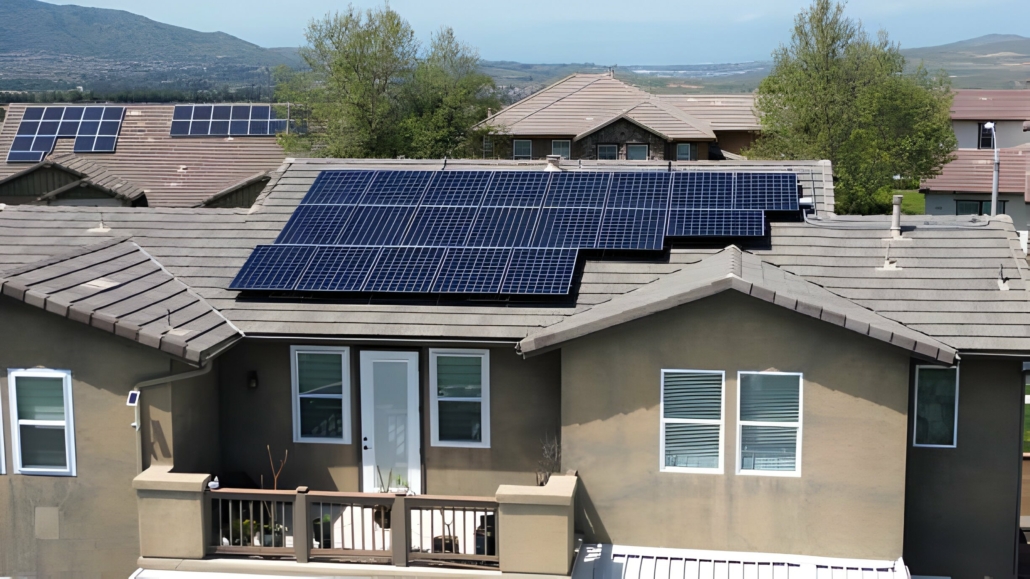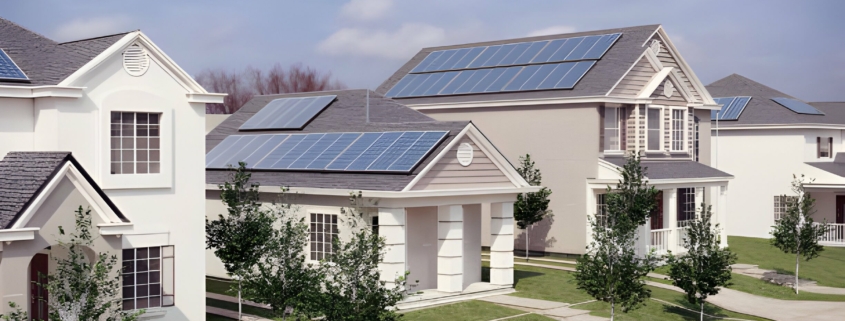6 Essential Insights on Renting Solar Panels for Your Home: Understanding Solar Power Leasing
The shift towards renewable energy sources is becoming increasingly popular among homeowners seeking sustainable and cost-effective solutions. Solar panels are at the forefront of this trend, offering a viable way to reduce carbon footprints and energy bills. However, the cost of purchasing and installing solar panels can be prohibitively expensive for many. This is where solar power leasing comes into play as an attractive alternative.
This blog explores six essential insights into renting solar panels for your home, providing a comprehensive understanding of what to expect from solar power leasing.
What is Solar Power Leasing?
Solar power leasing is a financial agreement where a homeowner rents solar panels from a leasing company. Unlike purchasing, this arrangement does not require owning the panels. It’s an excellent choice for those who want to avoid large upfront costs and still benefit from solar energy.
- Lease vs. Purchase: In leasing, the responsibility for the solar panels remains with the leasing company, which handles installation, maintenance, and upgrades.
- Flexibility: Most leases are flexible, offering various terms and conditions to fit different needs and preferences.
- Cost-effectiveness: Leasing can provide a fixed, predictable cost for solar energy, often lower than traditional utility rates.
Solar power leasing should not be confused with rent-to-own solar panels, where you eventually own the panels after making enough lease payments. Each has its merits, depending on your long-term energy goals and financial situation.
Key Benefits of Renting Solar Panels
Renting solar panels presents several benefits, especially for those seeking a low-commitment approach to adopting renewable energy. This method allows households to harness solar power without the financial burdens associated with ownership. Here are the key advantages broken down into concise points:
No Upfront Costs:
- A minimal initial investment is required.
- Makes solar energy accessible to more households.
Reduced Energy Bills:
- Monthly savings by replacing higher-cost utility power.
- Long-term financial benefits through consistent energy cost reductions.
Maintenance and Repairs:
- All system upkeep is handled by the leasing company at no extra charge.
- Hassle-free solution for technical maintenance and unexpected repairs.
Performance Monitoring:
- Continuous system monitoring to ensure optimal operation.
- Early detection and resolution of any performance issues.
Flexible Terms:
- Customizable lease durations and payment plans.
- Adapts to budget and lifestyle changes over time.
Upgrade Options:
- Opportunity to update to newer technology at lease end.
- Access to the latest solar advancements without significant reinvestment.
Each of these points underscores why solar panel renting can be more advantageous for homeowners who prefer not to fully commit to purchasing and maintaining a solar system. Through financial flexibility, minimal responsibility, and strong support, solar leasing offers an attractive and practical pathway to sustainable living.
Understanding Your Solar Panel Lease Agreement

Navigating a solar panel lease agreement can be daunting, but understanding its terms is crucial to ensuring it benefits you. Here’s what you typically find in these agreements:
- Duration: Most leases last between 15 to 25 years. It’s essential to consider the long-term aspect and how it fits into your housing plans.
- Payment Schedule: Understand how payments are structured—whether fixed or escalatory—and how they might change over the lease term.
- Termination Clauses: Be clear on the process and penalties involved should you decide to terminate the lease early, such as if you move house.
It’s important to thoroughly review and possibly consult a professional about the lease agreement to ensure it aligns with your energy needs and financial circumstances.
Rent vs. Rent-to-Own Solar Panels: Which is Best for You?
Choosing the right solar panel arrangement can significantly impact your financial planning and property management. The decision between renting solar panels and entering into a rent-to-own agreement depends largely on your financial situation, long-term housing plans, and energy needs. Here we delve deeper into both options to help you make an informed choice.
Renting Solar Panels
Renting solar panels is akin to leasing; you enjoy the benefits of solar energy without the responsibilities and costs associated with ownership. This option is particularly appealing for several reasons:
- No Ownership Responsibilities: As the lessee, you are not responsible for the maintenance or repairs of the solar panels. The leasing company handles all upkeep, ensuring your system operates optimally without any additional costs to you.
- Lower Monthly Payments: Typically, renting involves lower monthly payments compared to rent-to-own or purchase agreements, making it more accessible for many homeowners.
- Flexibility: Leasing agreements often come with options to upgrade or change the system as new technologies emerge, providing flexibility not available with purchase options.
- Short-Term Commitment: Ideal for those who may not plan to stay in their current home long-term, as leases can sometimes be transferred to the next homeowner or terminated (subject to terms).
Rent-to-Own Solar Panels
The rent-to-own model offers a pathway to ownership, allowing you to eventually own the solar panels after a predetermined period or through a buyout option. This arrangement has distinct advantages:
- Path to Ownership: After the lease term, or through specific buyout options, you own the solar panels, which can increase the value of your home and yield long-term savings on energy costs.
- Investment in Property Value: Owning solar panels can significantly enhance your property’s market value, making this a solid investment in your home’s future.
- Stable Energy Costs: Locking in your solar panel costs can protect against rising energy prices in the future, offering more predictable monthly energy expenses.
| Feature | Renting Solar Panels | Rent-to-Own Solar Panels |
| Initial Financial Outlay | Lower initial costs; no large upfront payment | Higher initial payments; lead to ownership |
| Long-Term Financial Benefits | Lower monthly payments | Potential for long-term savings and asset gain |
| Commitment Level | Less commitment; flexible terms | Higher commitment; aimed at long-term stability |
| Maintenance and Repairs | Handled by the leasing company | Becomes the homeowner’s responsibility after the transfer |
| Ownership | No ownership of panels | Leads to ownership after lease term |
| Property Value | No direct impact on property value | Increases property value by adding a fixed asset |
How to Choose the Right Solar Leasing Company
Selecting a reputable solar leasing company is crucial for a positive solar power experience. Consider these factors when choosing a provider:
- Reputation and Experience: Look for companies with strong track records and positive customer reviews.
- Agreement Flexibility: Companies that offer customizable terms and conditions provide better matches to your specific needs.
- Support and Service: Ensure the company provides comprehensive customer support and swift service for maintenance and repairs.
Taking the time to research and compare different solar leasing companies can lead to better service and more favorable lease terms.
Preparing Your Home for Solar Panel Installation

Before installing solar panels, several steps need to be taken to prepare your home, ensuring the installation process goes smoothly and efficiently:
- Roof Inspection: Have a professional evaluate your roof’s condition. It should be structurally sound to support solar panels.
- Sun Exposure Check: Ensure that the panels will receive adequate sunlight, without obstructions from trees or other structures.
- Permitting: Be aware of any local permits or regulations that need to be addressed before installation.
Preparing your home properly can maximize the efficiency and benefits of your new solar power system.
Conclusion
Renting solar panels is an excellent way for homeowners to enjoy the benefits of solar power without the burdens of hefty upfront costs and ongoing maintenance. By understanding the nuances of solar power leasing and choosing the right provider, you can significantly reduce your energy bills and contribute to a greener planet. Consider your household’s energy needs, financial situation, and long-term plans when deciding whether to rent or own solar panels.




